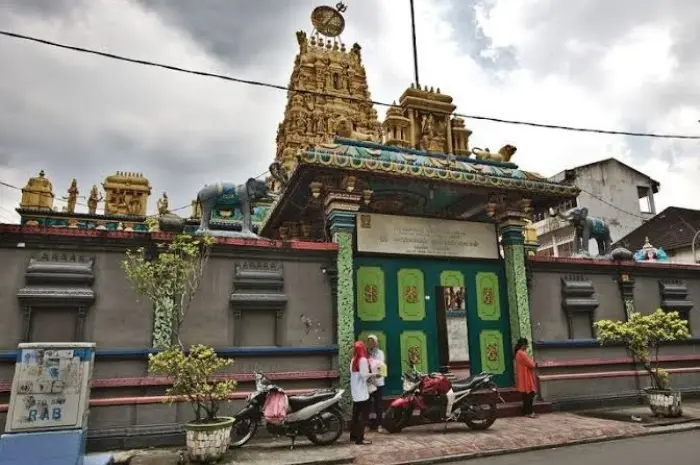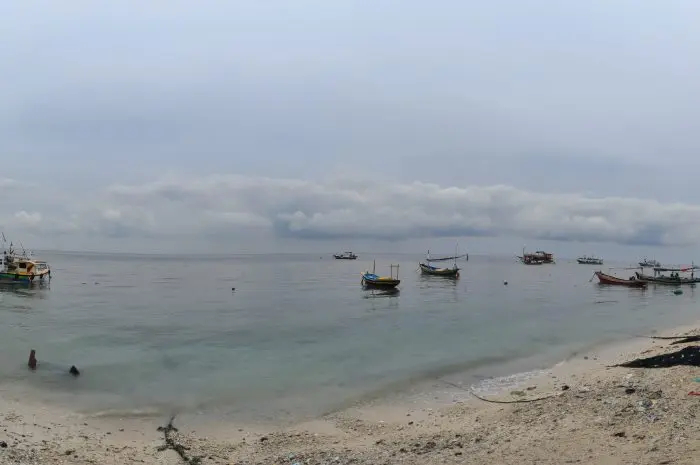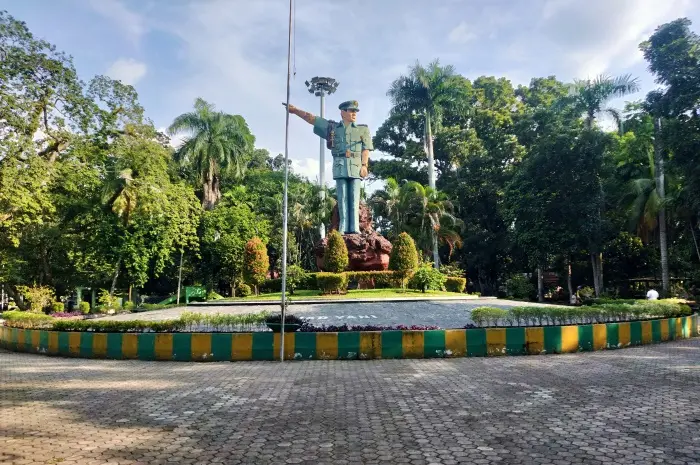Discover Keling Village in Medan and immerse yourself in the rich and diverse Indian culture and traditions.
Medan, the largest city in North Sumatra, is known for its rich cultural diversity. One of the areas that highlights this multicultural aspect is Keling Village.
Located in the heart of Medan, Keling Village has become synonymous with Indian culture. Here, visitors can enjoy various aspects of Indian culture, from traditions and customs to cuisine and religious rituals that are still deeply rooted in the community.
The History of Keling Village
Keling Village, also known as “Little India,” is one of the most unique Tourist Attractions in Medan due to its long history tied to the strong presence of the Indian community.
In the late 19th century, when Indonesia was still under Dutch colonial rule, many Indians came to North Sumatra to work on plantations.
Most of them came from Tamil Nadu in southern India and were predominantly Hindu. Over time, they settled in Medan and built their own vibrant community in Keling Village.
Although the term “Keling” was originally used to refer to people of Indian descent in Indonesia, the area is now officially known as “Little India,” fostering a more positive and inclusive impression.
Today, it stands as a cultural tourism attraction that reflects the life of the Indian community in Medan.
Temples and Places of Worship
One of the main attractions of Keling Village is the presence of Hindu temples, which serve as spiritual and cultural centers for the Indian community. The most famous temple in Keling Village is the Sri Mariamman Temple, the oldest Hindu temple in Medan.
Built in 1884, this temple is an important place of worship for Tamil Hindus in Medan. The temple is dedicated to the goddess Mariamman, a protector deity in Hinduism, who is believed to bring blessings and protection to the local community.
The temple’s architecture is stunning, adorned with intricate carvings, statues of Hindu deities, and vibrant colors characteristic of Indian temples. During religious festivals such as Thaipusam and Deepavali, the temple is packed with worshippers who come to pray and participate in the religious processions. These rituals are a vital part of the Indian community’s spiritual life in Keling Village.
In addition to Sri Mariamman Temple, there is also Vihara Gunung Timur, reflecting the cultural assimilation in Medan. Although this is a Buddhist temple, the influence of both Chinese and Indian cultures is strongly felt, symbolizing the harmony of the various ethnic groups that live side by side in Keling Village.
Customs and Traditions
Keling Village is not only known for its temples but also for the customs and traditions that the Indian community continues to uphold. One of the most important traditions is Indian weddings, which are often celebrated with colorful and elaborate ceremonies.
In Indian weddings, the Saptapadi (seven steps) ritual is a crucial part, where the bride and groom walk around the sacred fire as a symbol of their marriage vows.
Another notable tradition is the Pongal festival, an annual harvest celebration for the Tamil community. During this festival, the Indian community in Keling Village prepares special dishes made from freshly harvested rice to express gratitude for a bountiful harvest.
The Pongal festival in Keling Village is a time for families and communities to gather, preserving traditional values and cultural practices.
Authentic Indian Cuisine in Keling Village
No discussion about Keling Village would be complete without mentioning the authentic Indian cuisine that can be found in the area.
As you walk through Keling Village, you’ll find many restaurants and food stalls serving traditional Indian dishes. One of the most popular is roti canai, served with delicious curry sauce. Other favorites include biryani rice, samosa, and masala dosa.
Many restaurants in Keling Village maintain the authenticity of their flavors and ingredients, allowing visitors to enjoy an authentic Indian culinary experience without having to travel to India.
Well-known establishments such as Restoran Cahaya Baru and Medan Selera have long been favorite destinations for those who love Indian cuisine.
Indian Cultural Festivals
Keling Village is also home to various Indian cultural festivals, one of the most notable being the Deepavali celebration, or the Festival of Lights.
During Deepavali, Keling Village is illuminated with colorful lights, fireworks, and entertaining cultural performances. The celebration symbolizes the triumph of light over darkness and is joyously observed by the Indian community in Medan.
Another major festival is Thaipusam, a Hindu religious celebration dedicated to Lord Murugan. During Thaipusam, a procession takes place where devotees carry offerings such as milk and food.
The Thaipusam celebration in Keling Village draws crowds from both the Hindu community and visitors from outside.
Conclusion
Keling Village in Medan is not just a residential area; it is a reflection of the rich cultural heritage of the Indian community that has lived alongside other ethnic groups for centuries. One of the Top Things to do in Binjai and its surrounding areas is to explore this vibrant village.
The presence of Keling Village is a testament to Medan’s multicultural identity, where diverse traditions and customs coexist in harmony.
With its magnificent temples, preserved traditions, and mouth-watering cuisine, Keling Village offers a unique and enriching cultural experience for anyone who wants to learn more about Indian culture in Indonesia.







